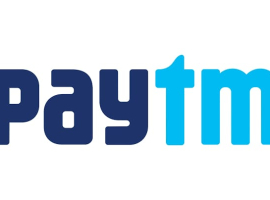Reverse Flip: Razorpay’s Cross-Country Merger May Incur $250-300 Million Tax
Three points you will get to know in this article:
- Razorpay, a Fintech company, plans to relocate its parent company to India through a cross-country merger, likely leading to a $250-300 Mn tax payment in the US.
- Despite potential tax liability reduction with a lower valuation, achieving regulatory approval could be challenging due to the company’s steady growth trajectory.
- To cover the predicted tax, Razorpay intends to raise new funding in 2024 and is also seeking necessary merger approvals, influenced by its aim to list on Indian stock exchanges.
Fintech unicorn Razorpay is strategically considering a move to shift its headquarters to India through a cross-country merger, anticipating a potential tax liability ranging from $250 million to $300 million in its current base, the United States. This strategic initiative involves merging its U.S.-registered entity with its Indian counterpart.
Razorpay, along with its valued investors, is exploring the prospect of a merger at a valuation lower than its peak of $7.5 billion in 2021. Despite this adjustment, advisors on both ends of the negotiation table—comprising professionals in the U.S. and esteemed firms like KPMG and Deloitte in India—express reservations. Their concerns are rooted in the rapid growth trajectory of the payments processor over the last two years, as reported by ET.
A lower valuation would reduce the tax burden, but it might also face difficulties in getting approval from the regulators. A source quoted in the report said, “The company has been considering a valuation of $3 Bn – $4 Bn, but external advisors think that it may not pass the US authorities’ scrutiny because the company has been growing steadily in the last year or so, while its US peers have seen their valuations drop.”
Razorpay plans to seek approval from the National Company Law Tribunal (NCLT) for the merger in the next two months. The company will also appoint an auditor to discuss the valuation. Fintech sensation Razorpay is gearing up for a major financial maneuver by eyeing a shift in its headquarters to India through a cross-border merger. However, this strategic chess move comes with a hefty price tag of $250 million to $300 million in tax payments in its current home ground, the United States.
This intricate plan involves the amalgamation of its US-registered entity with its Indian counterpart. The brain trust at Razorpay, alongside its savvy investors, is mulling over this merger, albeit at a reduced valuation from its peak of $7.5 billion in the fruitful year of 2021. Despite the downsizing, insiders from both sides of the negotiating table, including luminaries from the US and esteemed firms like KPMG and Deloitte in India, are treading cautiously. The source of their wariness? The rapid growth trajectory of Razorpay over the past two years, as reported by ET.
But that’s not all on Razorpay’s strategic agenda. There’s talk of securing a fresh injection of funds from investors in 2024 to offset the impending tax burden. The uncertainty surrounding the National Company Law Tribunal’s (NCLT) approval timeline has pushed Razorpay into this tactical financial planning.
Behind the scenes, Razorpay’s relocation decision is rooted in its ambition to grace the listing boards of Indian stock exchanges within the next two to three years. This calculated move isn’t just about changing addresses; it’s a strategic chess piece aimed at bolstering the company’s ability to deftly navigate the regulatory landscape in India.
Whispers in the corridors suggest that Razorpay has engaged in talks with government officials to grease the wheels and secure the necessary approvals for this intricate relocation process. In the grand symphony of financial strategy, Razorpay is orchestrating its moves with precision and foresight.
Established by Shashank Kumar and Harshil Mathur in 2014 with a focus on payment gateway services, this startup has evolved over the years, venturing into diverse areas such as SME payroll management, banking, lending, payments, and insurance.
In the year 2021, Razorpay secured a substantial $375 million in its Series F funding round from notable investors like Lone Pine Capital, Alkeon Capital, and TCV, resulting in an impressive valuation of $7.5 billion. The company had already joined the coveted unicorn club in 2020, having received $100 million in funding from entities including Singapore’s GIC and Sequoia Capital.
Reflecting its robust business growth, Razorpay’s standalone net profit expanded by 20% to INR 7.3 crore in the financial year 2021-22 (FY22), compared to INR 6.1 crore in FY21. This financial success underscores the company’s resilience and upward trajectory in the market.
The startup saw its revenue from operations grow 76% to INR 1,481 Cr from INR 841.2 Cr in FY21. Many major players in the Indian startup scene are thinking of “reverse flipping” – moving their headquarters back to India. This move, which was inspired by PhonePe’s shift, which paid INR 8,000 Cr to relocate for a possible public listing, has faced some hurdles.
According to an Inc42 survey published earlier this year, more than 77% of venture capital funds and 65% of angels said that after the SVB collapse, founders are reconsidering overseas registration, with tax issues discouraging a return to India for startups registered in the US.
Fintech giant Razorpay is planning a cross-country merger to relocate its parent company to India from the US. However, this could trigger a $250-300 Mn tax liability in the US. While a lower valuation could reduce the tax obligation, regulatory approval may prove challenging. Razorpay, experiencing steady growth over the past years, aims to list on Indian stock exchanges in the next few years. The company plans to raise funding in 2024 to cover the tax payment and has begun dialogues for the required merger approvals.




